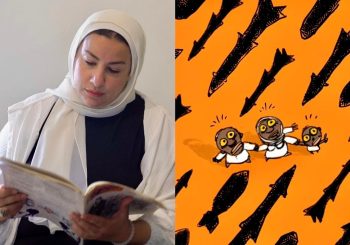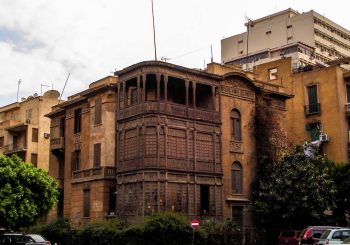Fatma Ibrahim El Sayed El Beltagy was born on December 31, 1898 in a rural village in Egypt’s Daqahliya governorate to a poor family. From a young age, her vocal talents were clearly exceptional but it is improbable that anyone expected Om Kalthoum to rise to such heights of fame or be remembered 41 years after her death as “The Star of the East.”
Under her father’s direction, who was an imam, she began attending the Qur’an school in her village at a young age, where she memorized large sections of the Islamic holy book. Upon discovering her strong voice, her father brought Fatma along with him and her older brother to mulids and other religious ceremonies, where she would perform religious chants.
In the early 1920s she visited Cairo several times after prominent oudist Zakariya Ahmed “discovered” her talent and invited her to visit the capital, where she had a chance of launching a professional career. She eventually moved to Cairo in 1923 and began to develop her talents and career.
Around that time, she met Mohamed Abdel Wahab, who is renowned for his work with Egyptian singer Abdel Halim Hafez. Abdel Wahab would later compose “Inta ‘Omri” (You Are My Life) for Om Kalthoum, which became one of the singer’s most famous songs.
Careful to maintain her traditional lifestyle, Om Kalthoum began to develop her talents and was introduced to an array of cultural icons, including poet Ahmed Rami, who eventually wrote a total of 137 songs for her.
In 1935, the singer ventured into cinema and starred in musical films such as Wedad (1936) and Aida (1942). It was around this time that Om Kalthoum’s fame skyrocketed and her monthly concerts became highly anticipated by many avid fans across the country.
Throughout the course of her career, Om Kalthoum collaborated with various high-profile names such as Baligh Hamdy, who composed the highly popular song “Hob Eih” (What Love?).
Om Kalthoum passed away on February 3, 1975 but her memory continues to live on 41 years later. In Cairo, a museum dedicated to the musical icon was inaugurated in 2001, while her songs can often be heard playing in taxis, cafés and grocery stores alike.






Comments (0)